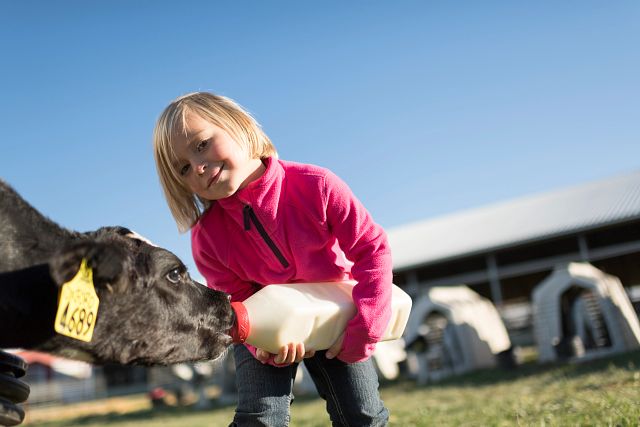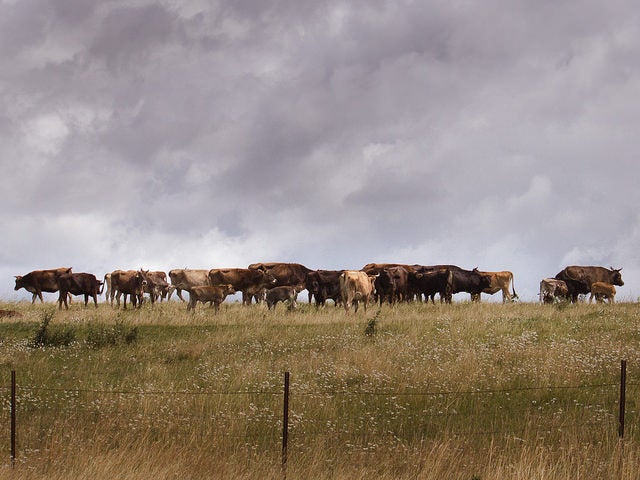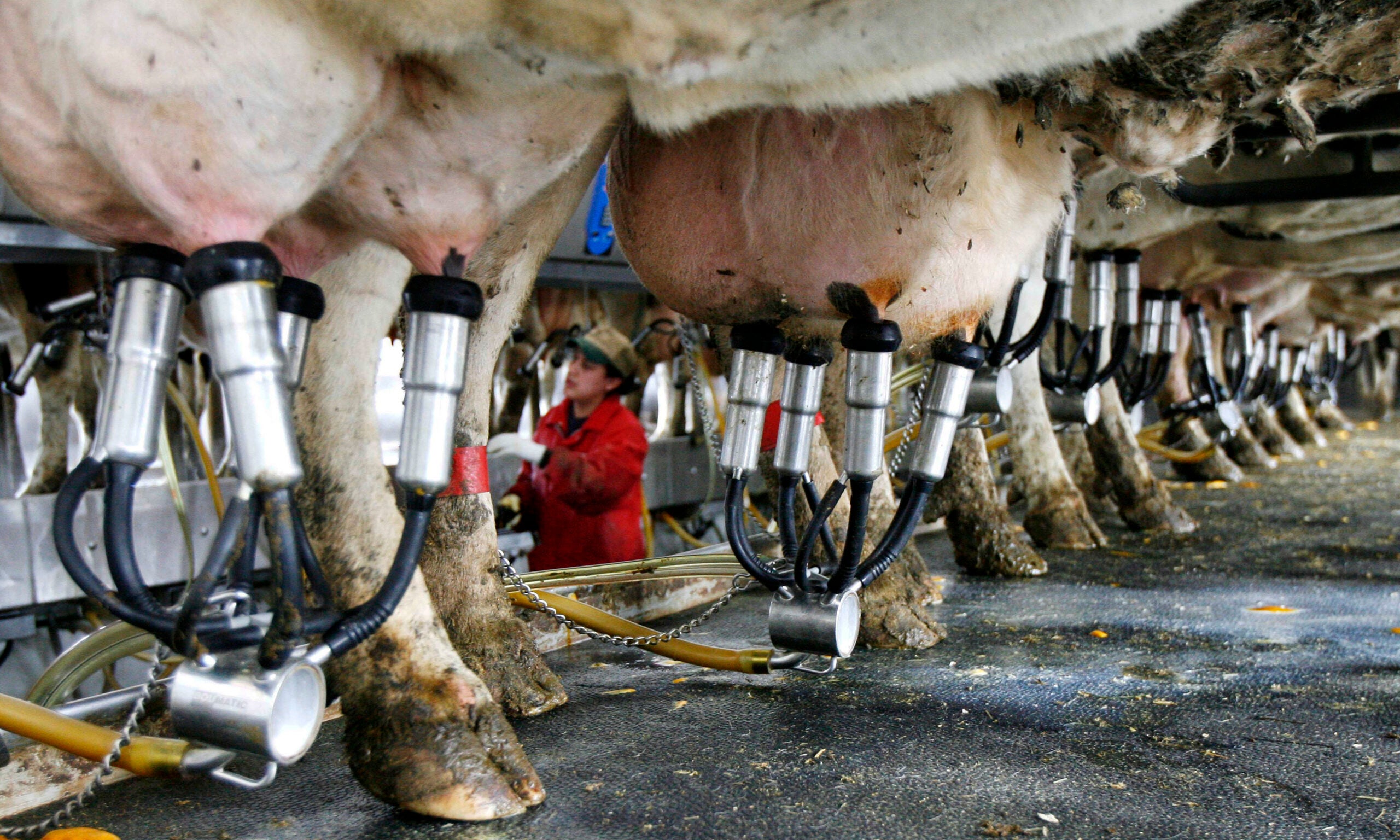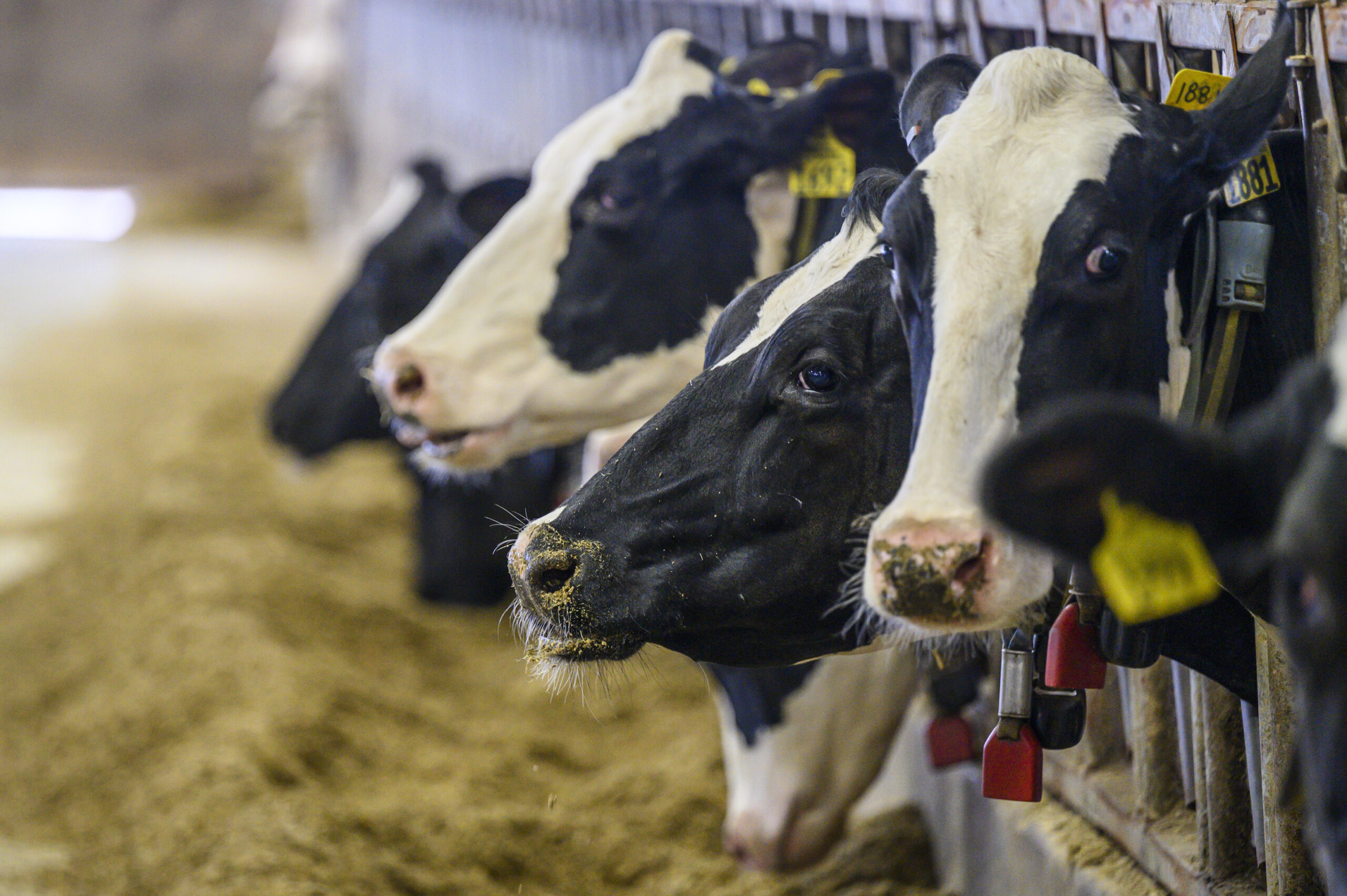With an economic impact nearing $46 billion statewide, the dairy industry is a major player in Wisconsin agriculture. But what’s it really like to be a dairy farmer? What are the issues facing today’s dairy farmers in southwestern Wisconsin?
Justin Peterson is a co-owner of Creamery Creek with his wife, Louisa, and members of the Hansen family, who have been farming on the Creamery Creek site for four generations, since 1932. The partnership’s multifaceted farming operation has roots in the southwestern Wisconsin town of Bangor that go back more than 90 years. Peterson spoke with WPR’s Ezra Wall on “Morning Edition.”
The following conversation has been edited for brevity and clarity.
Stay informed on the latest news
Sign up for WPR’s email newsletter.
Ezra Wall: How did you get into farming?
Justin Peterson: I was born in Michigan. My grandparents had a dairy farm and I was obsessed with it. From the time I was a small child, I heard many times from my mother, “Why don’t you just pack your bags and move to your grandma and grandpa’s house?” That’s how infatuated I was with farming.
I went to Michigan State, where an internship brought me to Wisconsin and I saw it as the land of opportunity for anybody who wanted to be involved in the dairy industry.
EW: The legacy of your farm goes back more than 90 years. You haven’t been there that whole time, but what changes have you seen in the industry in your tenure?
JP: The two biggest changes we’ve seen have been the exodus from the industry and new technology. Unfortunately, there were a lot of kids who got the message when they were little that the farm was a hard way of life. They were told to do anything but farm, that there was no money in it. It’s a rewarding lifestyle, but there’s no money. There’s no free time. We have seen this exodus, especially when my friends were graduating from high school and college. They didn’t want to return to the farm.
EW: How do you tell today’s kids — your kids — that is hard work and it is a hard lifestyle at times, but it’s also a worthwhile endeavor that can provide for a family and can be really meaningful work?
JP: I think it starts at a young age. Give any kid you know exposure to agriculture. Agriculture has changed so fast that most people don’t even realize what it involves. We all have this picture in our heads of the red barn and the 40 cows. And it was just hard, back-breaking work — and as times have changed and evolved, it’s still hard work. But we have a lot of tools in our toolbox that make the work easier.
It’s a fast-paced, challenging environment every day, don’t get me wrong. But there’s just so much opportunity out there if people are willing to look at it. We don’t do things the same way we did 10 years ago, 20 years ago, 50 years ago. We always have to look at new ideas, new technologies, different ways of doing things and keep it exciting for our team members and for the next generation to come in.
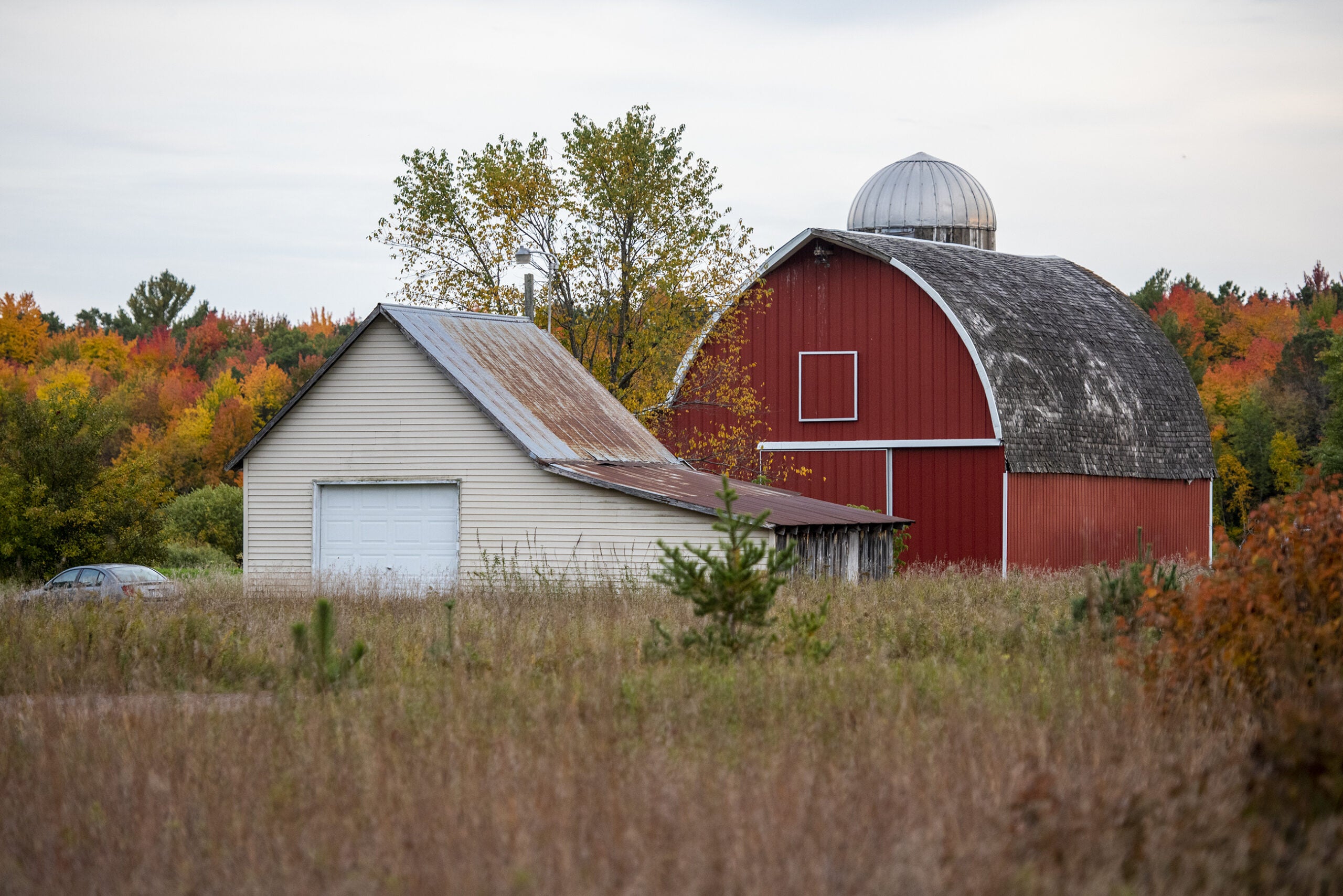
EW: We’ve read reports for years now about the declining number of dairy farms in Wisconsin. What do you think the biggest challenge is for this generation of dairy farmers in Wisconsin?
JP: Two of our biggest challenges are profitability and sustainability. I think of sustainability not only environmentally, but socially. Telling your story to the neighbor.
We have to be proactive with everybody around us. Part of our problem, and I’m very guilty of this at times, is that we want to live in our own little world and not promote the industry, not be involved outside of agricultural circles. But what’s the statistic? Two percent of the population — out of every 100 people, there are 98 people who are removed from agriculture.
But there’s a lot of opportunity to educate the consumer as to what we’re doing, why we’re doing it, how we’re trying to do better every single day, not only for the farm itself, for the next generation, but more importantly for the environment and for the future to come.
EW: If you had an opportunity to speak to those 98 percent, what is it you would want them to know about being a farmer?
JP: We need to really educate the consumer and have meaningful conversations about where food comes from. Let them know how we are out here taking care of our animals and land every single day. And let’s face it, we have to take care of our animals and our land and our people because that’s what provides us with our way of life, our income. It’s foolish for us to try and cheat the system or do anything harmful because it affects our bottom line.
I think sometimes as farmers, we kind of get a bad rap. People think we’re just out neglecting everything, like our animals and the land. And that’s the farthest thing from the truth. We have such care and compassion for the animals, the environment and our people that I just wish we could have a more open conversation with the general consumer on the care that we put forth in all aspects of our operation.
If you have an idea for something you’d like us to cover in southwestern Wisconsin on “Morning Edition,” you can email it to us at southwest@wpr.org.
